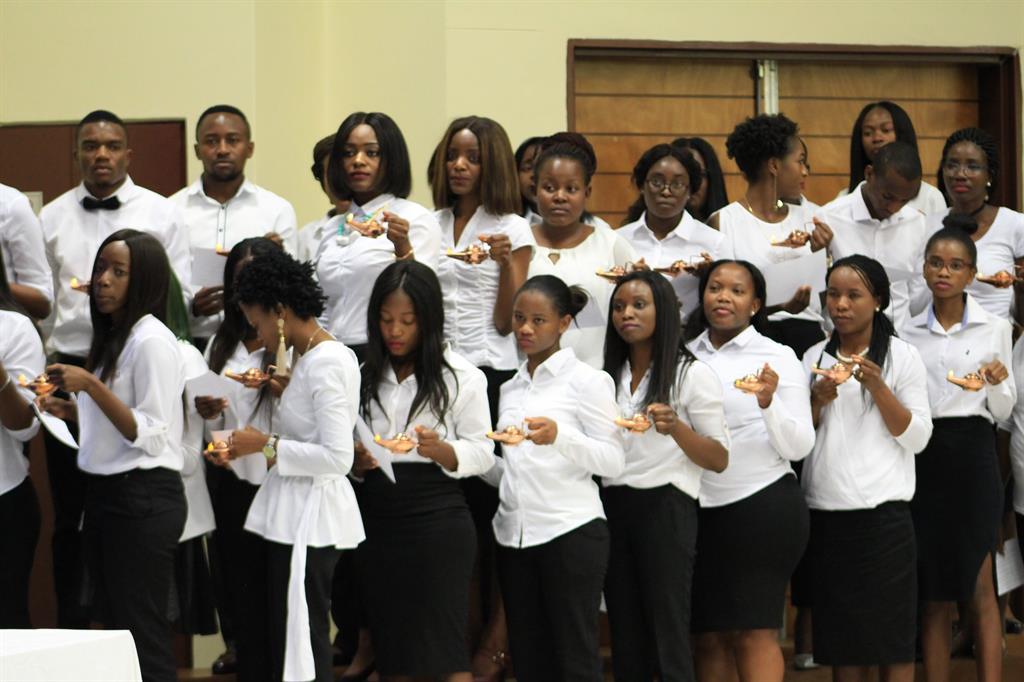First nurses graduate from IUM
IUM’s nursing programmes emphasise the critical aspect of practical training, which must be incorporated to make them well-rounded and effective caregivers.
Tunohole MungobaJusticia Shipena
The International University of Management (IUM) held their first-ever nursing graduation ceremony on 26 September, following an intensive four-year programme.
Deputy health minister Juliet Kavetuna said more than 7 000 Namibians make up the majority of health workers in the country and they ought to be in the front seat of transforming healthcare systems in the country.
Kavetuna said a World Health Organisation (WHO) report released in 2013, titled ‘A universal truth: No health without a workforce’, identified a massive global shortage of health workers.
There are several key causes, which include an ageing health workforce, with staff retiring or leaving for better jobs without being replaced, and not enough young people entering the profession or being trained.
“Namibia is no exemption to this hardening reality. Therefore, we are obliged to produce professionals who provide quality healthcare to our people, while also improving the health status of our country,” she said.
Kavetuna said if the nurses live up to their pledge of service, and think of how many lives they will give hope to by doing the simplest things, their contribution will never be underestimated.
“These little things may cause us to be nominated for the Peace Nobel Prize, but what we do soothes the human heart and spirit. We must strive to bring about positive changes in our patients.”
Kavetuna also touched on President Hage Geingob statements regarding the Fifth National Development Plan Five (NDP5), which was launched early last year.
She said government encourages a “service mentality” or work ethic.
It is only through the adoption of a high-standard work ethic and a culture of delivery that one can bring to fruition our national development aspirations, Kavetuna said.
IUM founder and governing council chairperson, Dr David Namwandi, said it is universally recognised that healthcare providers are a positive force, who have a profound impact on the life of individuals and nations.
In recognition of this fact, IUM’s nursing programmes emphasised the critical aspect of practical training, which must be incorporated to make them well-rounded and effective.
“In so doing, IUM engaged hospitals and healthcare facilities, both public and private, in providing their facilities and expertise for our nursing students. Various MoUs were signed in this regard and I would equally want to thank these hospitals for having made it possible for our students to gain valuable practical training,” he said.
Namwandi remind the students that by taking the oath they are informing the public what they can expect from them as nurses.
He believes that nursing values and the very spirit of nursing are embodied in this oath. He said the responsibility that rests on their shoulders, now and in the future, is a grave one.
“We have faith in you. From the feedback received from hospital administrators and patients alike during your practical training, I can confidently say that you have already made us proud. Keep shining! Certainly the road will be thorny at times, but you are already aware of what it entails and challenges are also tools for you to grow. Let the oath keep you strong in the delivery of your day-to-day duties,” he said.
IUM acting vice-chancellor, Kingo Mchombu, congratulated the nursing graduates for successfully completing their bachelor’s degrees in nursing.





Comments
My Zone
No comments have been left on this article